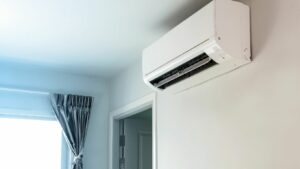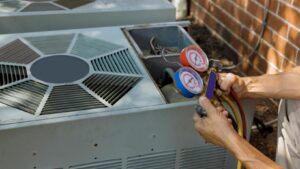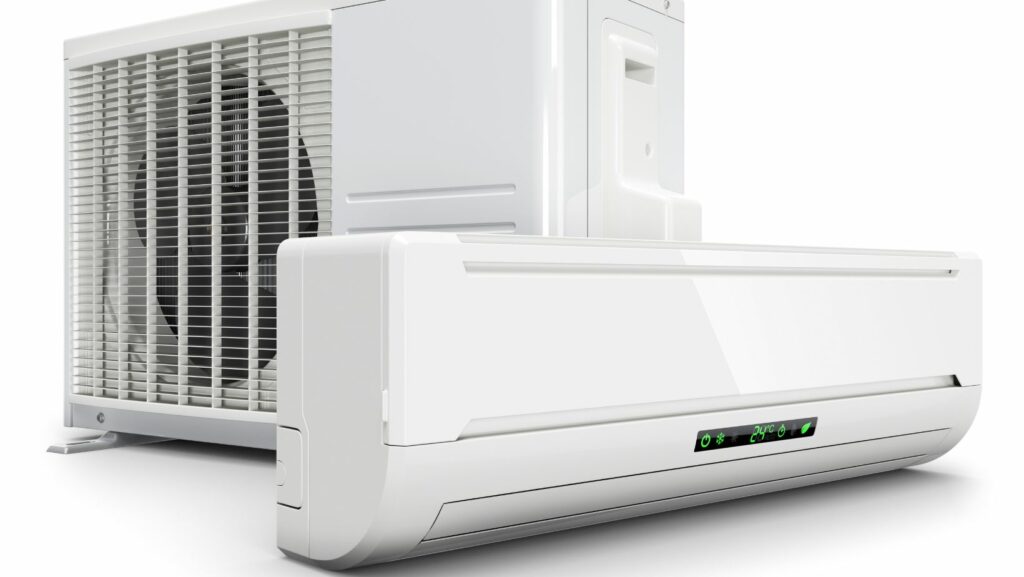As the mercury rises, the quest for cooler, more energy-efficient homes becomes a priority for many. In the forefront of this quest is the evolution of air conditioning technology, a field that’s seen remarkable innovations in recent years. These advancements promise not only to keep spaces comfortably cool but also to do so in a more environmentally friendly and cost-effective manner.
From smart thermostats that learn your schedule and adjust temperatures accordingly to systems that purify indoor air while cooling it, the new wave of air conditioning technology is redefining what it means to stay cool.
Air Conditioning Technology
The evolution of air conditioning technology demonstrates humanity’s ingenuity in responding to climate challenges, with new developments shaping more sustainable and comfortable living environments. As temperatures continue to climb across the globe, the quest for cooler, more energy-efficient homes becomes paramount. Advances in air conditioning technology, including smart thermostats and systems designed to purify and cool indoor air, are at the forefront of this quest, offering promising solutions that align with environmental sustainability and cost-effective home cooling strategies.
From Ice Blocks to Refrigerants
 The journey from using ice blocks to the invention of refrigerants marks a significant milestone in the history of air conditioning technology. Initially, ice from lakes and rivers was a primary source for cooling, but this method was neither efficient nor feasible year-round, especially in warmer climates. The invention of mechanical refrigeration systems in the late 19th and early 20th centuries revolutionized the industry, introducing refrigerants capable of cooling indoor spaces reliably. Today’s air conditioning systems leverage a variety of refrigerants, with recent innovations focusing on reducing their environmental impact. These modern refrigerants are designed to have lower global warming potentials (GWP), making air conditioning systems both more efficient and more environmentally friendly.
The journey from using ice blocks to the invention of refrigerants marks a significant milestone in the history of air conditioning technology. Initially, ice from lakes and rivers was a primary source for cooling, but this method was neither efficient nor feasible year-round, especially in warmer climates. The invention of mechanical refrigeration systems in the late 19th and early 20th centuries revolutionized the industry, introducing refrigerants capable of cooling indoor spaces reliably. Today’s air conditioning systems leverage a variety of refrigerants, with recent innovations focusing on reducing their environmental impact. These modern refrigerants are designed to have lower global warming potentials (GWP), making air conditioning systems both more efficient and more environmentally friendly.
Modern Digital Thermostats and Controls
Modern digital thermostats and controls represent a leap forward in optimizing home cooling systems for efficiency and comfort. Unlike their analog predecessors, digital thermostats offer precise temperature control, programmability, and the ability to learn from user preferences, ultimately reducing energy consumption and costs. Smart thermostats, the latest advancement in thermostat technology, allow homeowners to control their air conditioning systems remotely via smartphone apps. These devices can adjust the cooling based on real-time data, such as the outdoor temperature and humidity levels, and even the homeowner’s own schedules and habits. Integration with other smart home technologies further enhances the capabilities of new air conditioning systems, enabling features like voice commands and automatic adjustments when no one is home, ensuring that cooling is both efficient and tailored to individual needs. For guidance on comparing energy providers and optimizing your energy savings, Utility Bidder can be a valuable resource.
Key Features of New Air Conditioning Technology
Energy Efficiency
Modern air conditioners incorporate inverter technology, enabling them to adjust their power consumption based on the thermal load. This innovation greatly reduces energy use and costs.
Smart Control
Integration with smart home systems allows users to control their air conditioning units remotely via smartphones or voice commands, offering unparalleled convenience and further energy savings.
Air Purification
Advanced filtering systems in new air conditioning units capture and neutralize a wide range of pollutants, ensuring cleaner indoor air quality and benefiting residents’ health.
Eco-Friendly Refrigerants
The latest models use refrigerants with lower global warming potential, aligning with the industry’s push towards reducing environmental impact.
By incorporating these features, new air conditioning technology not only enhances living conditions but also supports global efforts to combat climate change.
Cutting-Edge Innovations in Air Conditioning
 Building on the advancements in sustainability and energy efficiency, cutting-edge innovations in air conditioning technology continue to set new benchmarks. Key developments include enhanced inverter technology that significantly reduces energy consumption by adjusting cooling power based on the room’s requirements. Smart control options empower users to manage their AC systems remotely via smartphones, optimizing comfort and efficiency. Additionally, advanced air purification systems now integrate into air conditioners, ensuring superior indoor air quality by filtering out pollutants and allergens. Moreover, the shift towards eco-friendly refrigerants marks a pivotal step in minimizing air conditioning’s environmental footprint, aligning with global climate change mitigation efforts. These innovations not only promise improved user comfort but also contribute to a more sustainable future.
Building on the advancements in sustainability and energy efficiency, cutting-edge innovations in air conditioning technology continue to set new benchmarks. Key developments include enhanced inverter technology that significantly reduces energy consumption by adjusting cooling power based on the room’s requirements. Smart control options empower users to manage their AC systems remotely via smartphones, optimizing comfort and efficiency. Additionally, advanced air purification systems now integrate into air conditioners, ensuring superior indoor air quality by filtering out pollutants and allergens. Moreover, the shift towards eco-friendly refrigerants marks a pivotal step in minimizing air conditioning’s environmental footprint, aligning with global climate change mitigation efforts. These innovations not only promise improved user comfort but also contribute to a more sustainable future.


